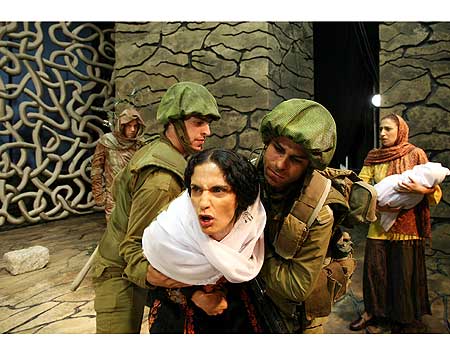Avert Thy Mind

People tend to hate and fear what they haven't seen. This is especially true when it comes to creative expression that touches on sensitive cultural or religious topics. Back in 1985, when Jean-Luc Godard's retelling of Christ's birth, "Hail Mary", opened in New York, there were numerous Catholic protesters praying for and haranguing ticket holders lined outside the theater. My friend Jim Buck and I watched all this unfold (we were poor, so this passed for free entertainment), as the faithful tried to shame those who wanted to see, as the ads promised, "one of the most controversial films of all time." They didn't get far, and if anything, annoyed and pissed off more people than they ever reached.
Jim then had an idea. He went up to several of the protesters and offered to treat anyone who wanted to see what they openly loathed. There were no takers.
"It won't cost you a cent!" Jim told them. "And this way, you'll know exactly what you're protesting!"
But they didn't want to know what they were protesting. Instead, they prayed for Jim, said some Hail Marys of their own, and when I made a sarcastic crack about the Pope's viewing habits, one woman threw holy water on me. If only I was quick and committed enough to fall to the curb and scream about how much it burned. But then, street theater was never my strong suit.
I was reminded of this after reading of a new play that opened in Tel Aviv, "Hebron", which dramatizes the ongoing cycle of violence in that West Bank city. Naturally, there are some Israelis who take issue with Tamir Greenberg's scenario, cleverly insisting that "Hebron" serves Hamas and is part of the "Palestinian propaganda machine [that] never rests." Or so says Susie Dym, a member of Irgun Matot Arim, a pro-settler/occupation group that is protesting the play. But has Dym seen "Hebron"? Of course not! She did, however, read the reviews, and that was all she needed to know what's really going on:
"The producers' intentions are clear. These are twisted people who ignore the facts and believe that the Palestinians are the most miserable people in the world. There's nothing wrong with weirdos, but here we're talking about weirdos who endanger the country and undermine its image abroad."
One might think that decades of occupation, imprisonment, land and water theft, and brutalization played a larger role in endangering Israel and undermining its global image, but these are weirdos Dym is talking about. And where there are weirdos, there is chaos. You don't need to actually see them to know that.


<< Home